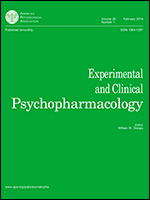
“This study investigated whether local intramuscular injection of non-psychoactive cannabinoids, cannabidiol (CBD), cannabinol (CBN), cannabichromene (CBC) and their combinations can decrease nerve growth factor (NGF)-induced masticatory muscle sensitization in female rats.
RESULTS:
In behavioral experiments, CBD (5 mg/ml) or CBN (1 mg/ml) decreased NGF-induced mechanical sensitization. Combinations of CBD/CBN induced a longer-lasting reduction of mechanical sensitization than either compound alone. No significant change in mechanical withdrawal threshold was observed in the contralateral masseter muscles and no impairment of motor function was found with the inverted screen test after any of the treatments. Consistent with behavioral results, CBD (5 mg/ml), CBN (1 mg/ml) and the combination of CBD/CBN (1:1 mg/ml) increased the mechanical threshold of masseter muscle mechanoreceptors. However, combining CBD/CBN (5:1 mg/ml) at a higher ratio reduced the duration of this effect. This may indicate an inhibitory effect of higher concentrations of CBD on CBN.
CONCLUSIONS:
These results suggest that peripheral application of these non-psychoactive cannabinoids may provide analgesic relief for chronic muscle pain disorders such as temporomandibular disorders and fibromyalgia without central side effects.”
https://www.ncbi.nlm.nih.gov/pubmed/31158702
https://www.sciencedirect.com/science/article/pii/S0003996919302249?via%3Dihub


 “The administration of cannabidiol has shown promising evidence in the treatment of some neuropsychiatric disorders, including cocaine addiction. However, little information is available as to the mechanisms by which cannabidiol reduces drug use and compulsive seeking.
“The administration of cannabidiol has shown promising evidence in the treatment of some neuropsychiatric disorders, including cocaine addiction. However, little information is available as to the mechanisms by which cannabidiol reduces drug use and compulsive seeking.

 “Cannabidiol (CBD) is a natural compound of cannabis, which exerts complex and widespread immunomodulatory, antioxidant, anxiolytic, and antiepileptic properties. Many experimental data suggest that CBD could have several types of application in alcohol use disorder (AUD) and alcohol-related damage on the brain and the liver.
“Cannabidiol (CBD) is a natural compound of cannabis, which exerts complex and widespread immunomodulatory, antioxidant, anxiolytic, and antiepileptic properties. Many experimental data suggest that CBD could have several types of application in alcohol use disorder (AUD) and alcohol-related damage on the brain and the liver. “Despite the staggering consequences of the opioid epidemic, limited nonopioid medication options have been developed to treat this medical and public health crisis.
“Despite the staggering consequences of the opioid epidemic, limited nonopioid medication options have been developed to treat this medical and public health crisis.
 “The nonpsychoactive phytocannabinoid, CBD, was recently approved by the Food and Drug Administration for the treatment of children with drug-resistant epilepsy. This milestone opens new avenues for
“The nonpsychoactive phytocannabinoid, CBD, was recently approved by the Food and Drug Administration for the treatment of children with drug-resistant epilepsy. This milestone opens new avenues for 